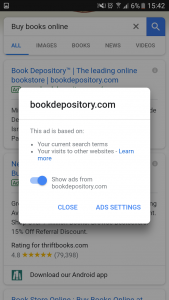Selling a business is ranked as one of the most stressful events in an entrepreneur’s life. Why? Because it takes an enormous amount of preparation and requires a lot of dedication and follow-through, and the process often brings with it setbacks, frustrations, and major disappointments. Imagine working on the largest transaction of your lifetime only to have it crater at the last minute.
For this reason, preparation is critical to lowering your stress level and therefore improving the chances of selling your business.
The first phase or step of selling your company is preparing it for sale, which requires organizational skills and a lot of hard work. Once your business is active on the market, then it mainly involves patience and persistence. If your business is actively being sold through a broker or intermediary, then this is the step where you will be the least involved.
Here is a summary of the process:
Preparation – This is when you, a business intermediary and other professional advisors (primarily your accountant) begin preparing your business for sale. This involves organizing all documentation on your business, including your financial statements, preparing a valuation on your company, and doing other cleanup and organizational work before you put your company on the market. You should be fully prepared before you put your business on the market.
Marketing – Note that the preparation and marketing are performed consecutively and not at the same time. Only when you have fully prepared your business for sale will your business broker be able to actively market your business.
Business brokers will be doing most of the work in this step, assuming that business owners have properly prepared their business for sale. This is the case because brokers have the knowledge they need to market your business and hold preliminary conversations with buyers.
Your broker will be actively marketing your business for sale using the marketing strategy developed during the preparatory stage. Your primary role as a seller is to continue running your business and maintain or increase the revenues of your business.
Offer, Due Diligence & Closing – Once the broker has found an interested buyer, you will become involved in the transaction again. You will spend a lot of time with the buyer, answering more detailed questions about your business, particularly those that were not addressed in your offering memorandum.
You will likely meet with the buyer several times before accepting an offer. Once you accept the offer, you will spend 30-60 days performing due diligence with the buyer. This will be a very involved step for you.
Again, you will be actively involved in preparing your business and negotiating the offer. The marketing process tends to be more hands-off for you until your broker has identified an interested buyer in your business.
Selling a business is not like football, baseball or any other sport where you make slow, measurable progress toward the goal line. Because so many entrepreneurs tend to be goal-driven and have Type A personalities, they can become easily discouraged by this “all or nothing” game.
It tends to feel “all or nothing” because you either win or lose. There is no middle ground. Either you have an offer on your business or you don’t. If you don’t have an offer, it is easy to get discouraged. This is where patience plays a key role for sellers.
Being patient and letting your broker do their job is important. Stay focused on your business. Whatever you do, do not take your hands off the steering wheel and let the revenues of your business decline. This will kill the prospect of a sale faster than anything else.
Small businesses are primarily sold online through business-for-sale web portals. This is a passive approach wherein your broker confidentially advertises your business online, screens the buyers and then presents these buyers information on your business. Again, business owners are action-oriented people, and they feel best when acting toward a goal. Because this is a passive process, it involves patience and waiting.
Selling a middle market business with cash flow or profits of at least $ 1 million annually involves actively contacting potential buyers (other competitors or private equity groups) of your business by phone, email, fax or mail. Ironically, selling a profitable middle market business is easier than selling a small business, and yes, the professional fees are also much higher.
Selling a small business with cash flow of less than $ 1 million per year requires a lot of patience because it involves a sit-and-wait approach.
If you are in a tremendous hurry to sell your business, then we suggest becoming actively involved in the process.
Why can’t your broker contact people to buy your small business?
There are two reasons:
- Who can they contact? The fact is that no one out there will likely buy your business other than an individual. No competitor or other company is likely to buy your small business. Please note that there are a few minor exceptions to this. If you actively hear about companies your size being purchased in your industry, then your industry may be an exception. Most small businesses are struggling to hang on and do not have the financial resources to buy out a competitor. The one exception is if your business has intellectual property that is highly valuable to another large company. Most small companies grow organically, and companies typically do not begin growing through acquiring competitors until they reach tens of millions of dollars in revenue.
- It is not cost-effective. Selling a $ 250,000 business using the middle market method or auction process by contacting competitors by phone, email, fax or letters/mail takes just as much work as selling a $ 25-million company. Selling a small business by advertising it for sale on online business-for-sale portals is both highly efficient and cost-effective. Selling a small business by contacting competitors, on the other hand, is not cost-effective because the probabilities that they would buy your business are very low.
Any serious potential buyer of a small business will start their search online. Try this for yourself: Go online now and Google information on buying a small business. You will end up on dozens of portals that specifically address this market. This is a self-selected pool of people who are actively looking to buy a business. This is the most efficient and cost-effective way to sell a small business.
If you were selling your car, which do you think is more effective?
- Advertising your car online on websites such as www.autotrader.com, www.cars.com, www.carbuyerusa.com and www.carsforsale.com.
- Going door to door and asking, calling and emailing people if they want to buy your car.
If you decide to call your competitors and ask them if they are interested in buying your business, most will be very interested. There is a big difference, however, between interest and action or follow-through.
Think about it this way: If one of your competitors called you today (stop and visualize this now), told you they are selling their business, and wanted to talk to you to see if you are interested, would you listen? Wouldn’t you be curious enough to talk to them a bit? Wouldn’t you “act” interested so you can see the financial performance of one of your competitors?
And this happens a lot. But even if a fraction of small businesses are sold this way, doing this is not practical or cost-effective.
What can you do to improve the chances of selling your business?
There is one very important thing you can do to sell your business. If your business is actively being marketed for sale and you are receiving poor results, then you should have a meeting with your business broker to revise your marketing strategy.
Think about this, if you are attempting to hire a new employee and you were running a “help wanted” ad for 30 days without any results, would you continue blindly running that ad for another six to 10 months? Or would you revise your strategy?
This advice is critical to selling your business. Again, if your business is currently being marketed for sale by a business broker and your strategy is not working, then revise your strategy — plain and simple.
The key here is that selling your business is an iterative process. This is a principle based on the “lean development” method that technology companies use to develop software. The lean development method is an iterative process that involves short bouts of action followed by reviewing what was learned and then more intelligent action based on what was learned. Each action results in more learning opportunities, which prompts you to take more action and to learn from previous results. It is a fast cycle of act, learn, act, learn, and so on.
So, you market your business for sale, review the results on a regular basis, and then adjust your strategy regularly based on what you have learned. In other words, marketing your business requires tweaking your strategies until the desired result is attained.
If you want to sell your business, then be patient and persistent. Keep your focus on the process.
Business & Finance Articles on Business 2 Community
Author: Jacob Orosz
Jacob Orosz is the founder and president of Morgan & Westfield, a professional services firm that specializes in the confidential appraisal and sale of small- to mid-sized, privately owned businesses. A certified business broker and licensed business/real estate broker, Jacob has over 15 years of experience facilitating mergers, acquisitions, sales… View full profile ›
(69)
Report Post





